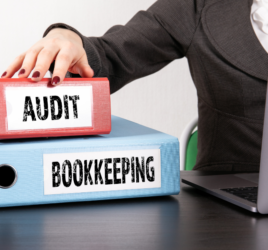
How To Get Your Financial Forecasting Right
Being savvy with your finances is at the heart of every successful business. To make your finances work there are some key elements that you need to make use of. A financial forecast is one of those things.
A financial forecast is an essential tool for any business. It predicts your future financial state, tells you how much your business needs to be making to grow, and can help you understand the steps you need to get you there.
Your forecast helps to keep your business on track and is also key information for securing funding from investors and lenders.
So, let’s look into how you can get your financial forecasting right.
How To Get Your Financial Forecasting Right
A Budget vs. A Forecast
Did you know that a financial forecast is not the same as a budget? A forecast is a prediction – it tells you where you need to go and how to get there. A budget is a lower level plan to keep spending and costs in check to achieve the forecast.
Understanding the two terms will mean that you have the skills to produce both. Each plays a different role in your business’ success.
Get Your Records Together
To set yourself up with an accurate and reliable forecast, you need to have thorough records of your past finances. The only way to see where your business is going is to look back on where it has been. Your past financial statements are a record of your business performance over time. These past trends can then be used to make your financial predictions for the future.
Your accounting software or accountant should have all of the statements you require (for example, income and gross income, cash flow, costs). If you don’t have these statements, you need to start building up a record of them before you can complete an accurate forecast.
Research and Forecast
Your forecast will be formed by a combination of two things – historical financial statements and market-based industry research.
By taking a look at the last few years of income and cash flow for your business, it is relatively easy to make an educated prediction about your future business growth. It isn’t overly complicated and doesn’t require expert knowledge. However, only relying on this information would not be enough for presenting to potential business partners or investors. It also does not take into account any trends in the wider market.
That is where your market-based research comes into play. You will need to look at new technologies in your industry and what the impacts of those have been or might be. You’ll also look at consumer buying trends and general financial performance in the industry in recent years.
This more in-depth research is what investors will be interested in, and can also help plug some gaps if you don’t have a large financial history for your own business to rely on.
Once you have completed your research, you can move on to making pro forma statements to project your income. These are your final records containing your forecasted predictions and details of revenue and sales. You’ll create a few different types of pro forma statements – one for income, one for cash flow, and a balance sheet.
As you can see, financial forecasting can be quite a complicated task. So, if you would like more information or assistance with forecasting for your business, contact us here at Accountants Plus today. We are experts in all sized business accounting and can customise hour services to suit your needs.



